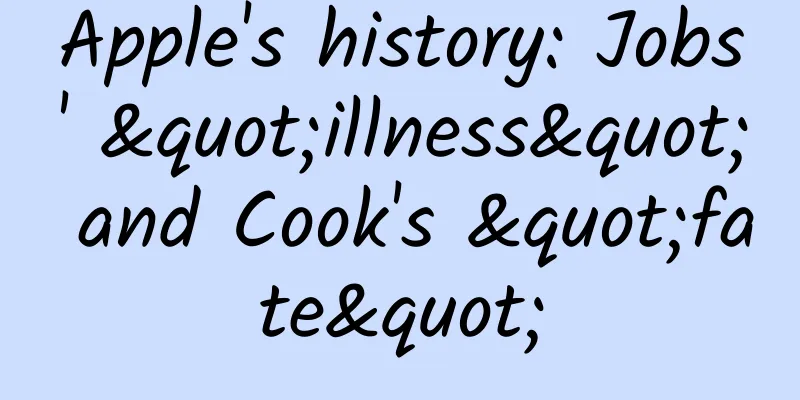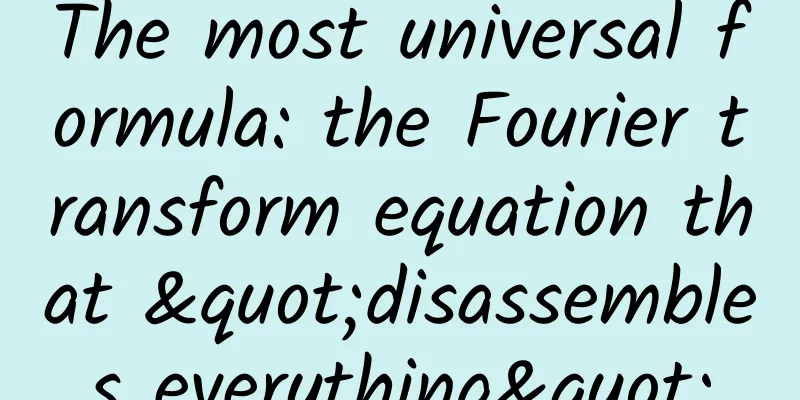Apple's history: Jobs' "illness" and Cook's "fate"

|
Side A is the excellent market value management ability and super strong cash flow, and side B is the mediocre product innovation and the mobile phone market performance. This is the current Apple: half is Cook's Apple, and half is Apple without Jobs. If Cook's Apple is a real company that can be built with data, then Apple without Jobs is more like people's nostalgia for the company's innovative ability that once excited the world. It's like we always deliberately ignore the current Sony and consciously or unconsciously construct our own cognition according to the Sony of the Akio Morita era. Apart from imagination and nostalgia, the real Apple has just started its own imperial era, and the main feature of the imperial era is that product innovation capabilities give way to the company's operational capabilities. As Ben Thompson said in Apple's Middle Age published on Stratechery in early February this year: "When the whole market is on the rise, it's easy to make decisions that everyone praises. Apple doesn't have to be like a young man with nothing to lose. When a person gets older and settles down, the environment and priorities will change. Everything is inevitable." The strategic situation that Cook is facing now is something that Jobs never encountered during his time. As for Apple's glory at the beginning of the century, half of the credit should go to Jobs, and half to Cook. Since joining Apple in 1997, Cook has played the role of an executor of Jobs' crazy obsession. He has built a supply chain management system that is unmatched in the world, pushing the global response speed in the industrial era to the extreme. A rubber band will break when it is stretched to the extreme, and this break cannot be solved by anyone. Jobs can't do it, and neither can Cook. If it is a bit of an exaggeration to say that Jobs left behind a traditional industrial system that put his successor in a bad situation, then Cook is at least facing a complex situation that his predecessor has never faced. This situation makes him, as the world's top operations master, somewhat unable to cope with it. This is Cook’s “fate”, but he suffers from Jobs’ “disease”. Jobs' illness While Jobs brought glory to Apple, he also brought potential risks to Apple. Although Apple's achievements are closely related to its own creativity and product excellence, Jobs, who led all of this, is to some extent the spokesperson for Apple. When Jobs' personal charm has too much influence on the company, it is not a good thing for Apple. The previous example is that the departure of Sony's founder caused Sony to fall from an excellent company to a mediocre company, which basically confirms this statement. This kind of influence does exist for Apple, as can be seen from the fact that after Jobs became ill, Apple's public relations department rarely gave direct answers to questions about Jobs' health when facing the media. In 2003, Jobs was diagnosed with pancreatic cancer. This was not good news for Jobs himself or Apple, which was at its peak. Jobs, a tyrannical and authoritarian leader, did not disclose his specific illness to the media. In Jobs's concept, he did not want to be regarded as a weak person because of his illness, nor did he want to be harassed one after another. The board of directors, investors, media, Apple employees, and the public are all paying close attention to this matter. The media even asked Apple's public relations department several times, and many reporters speculated whether Jobs was really seriously ill based on Jobs' weight and photos. Behind this almost ruthless questioning, there is no doubt that Jobs is of vital importance to Apple. Almost everyone is afraid that after Jobs leaves, Apple will repeat its previous mistakes. To a certain extent, everyone believes that Jobs means Apple, and without Jobs, Apple, which often gives people surprises and pursues demanding perfection, will no longer exist. However, even though Apple's public relations department tried to cover up the issue and refused to answer questions about Jobs' health, the news of Jobs' illness still caused Apple's stock price to drop from $186 to $149. Jobs' first medical leave was in January 2009, when he underwent a transplant and returned in late June. During that time, Apple's operations were handed over to Cook. Under Jobs's light, Cook will certainly be questioned. In a meeting with Wall Street analysts, when Barclays' Reitz asked, how would you run the company differently if Jobs didn't come back, do you think you would be a candidate for CEO? When the PR department gave an official response that Jobs was still the CEO and was involved in the company's major strategic decisions, Cook could have chosen to remain silent. However, the usually conservative Cook spoke up at this time, stating that Apple was full of talent, reiterating Apple's principle of simplicity, and emphasizing Apple's unremitting pursuit of excellent products. His declaration at this time was even called the "Cook Doctrine" later. People seem to have just realized that Cook has grasped the "essence" of Apple. In the third month after Jobs left, Apple's quarterly earnings increased by 15%. In the following quarter, iPhone sales were seven times the total of the previous year. Apple's stock price rose by at least 80% compared to the end of January, reaching $142. During the time when Jobs left, Cook was the most popular candidate in a survey of successor candidates, and some people on Wall Street even suggested that Cook stay permanently. American analysts said that investors believe that losing Cook is more of a problem than losing Jobs. When Jobs returned to the company at the end of June, he was not comfortable with the praise Cook received and the fact that Apple was still developing well and rising without him. Of course, Cook could not change the company's current situation in a short period of time, and a large part of Apple's achievements still came from the work Jobs had done. However, the high evaluation from the media still made Jobs furious when he returned to the company. Jobs was disappointed that his importance to Apple seemed to have declined, which was exactly the same as when he announced his illness in 2004 and the stock price dropped by 2%, Jobs asked, "Is it only this low?" As if to show his presence, Jobs changed the relatively relaxed working atmosphere during Cook's period and returned to a state of strict scrutiny. In addition, Jobs once scolded Cook at a high-level meeting, saying, "I am the CEO." Jobs was ill, and not just physically. Jobs, who was autocratic, irritable, and demanding perfection, was a double-edged sword. For Apple, which was once deeply mired in the quagmire, Jobs was a good way to reshape the company. However, Jobs' management style was extremely destructive in actual operation. Whether it was for the Apple brand or for corporate management and sustainable development, Jobs, who was autocratic, tyrannical, and did not consider the wishes of others, would inevitably bring some hidden damage to Apple's development. This was somewhat similar to the reason why Jobs was once kicked out of Apple. For example, Apple's supply chain problem. For Apple, non-disclosure of its supply chain is its long-term policy. On the one hand, Apple itself does not manufacture electronic devices and does not participate in the management and operation of manufacturing plants; on the other hand, behind Apple's glamorous sales data are tens of thousands of workers at electronic device manufacturers who work day and night to ensure that the product lines are completed on time. Some of Apple's mandatory directives directly affect the factories that produce electronic equipment for it. There was an article in the New York Times about how Apple changed from plastic to glass six weeks before the product was launched. The completion of this task on time once became an excellent topic of conversation for Apple. However, behind this impossible task, the workers who produced the iPhone were called back to the factory in the middle of the night and worked in shifts for 12 hours to rush out the product, and the workers were only compensated with a cup of tea and a biscuit. High-intensity labor means that workers are under great work pressure for a long time. There were incidents such as Ma Xiangqian's sudden death and Sun Danyong's suicide by jumping off a building after being scolded and humiliated for not properly storing an iPhone. In the following two years, at least 18 similar incidents occurred in Foxconn factories, but this number is only a small number compared to the more than 680,000 employees in Foxconn factories. The series of Foxconn workers jumping off buildings caused Apple to issue a statement expressing shock and apology. However, that is all. Apple is unlikely to reduce its orders or slow down its production because of work pressure. Apple's supply chain problems existed as early as the Steve Jobs era. The electronic equipment supply chain is not just Jobs' personal issue, but is a contemporary issue and a drawback of the traditional manufacturing process itself. It is difficult to break through barriers by relying on traditional manufacturing alone. Foxconn and Apple, which are interdependent, can use their control systems to the best of their ability with tough measures, but they are also prone to rebellion. Therefore, there is a saying that "to a large extent, Apple's future is in the hands of Terry Gou." This rebellious problem became the "fate" of Jobs' successor Cook after his death. Cook's life After following Steve Jobs to Apple, Cook has almost always been in charge of Apple's supply chain. Apple's supply chain problems are certainly a legacy of the Jobs era, but they are also handled by Cook. Cook put pressure on the team, the team put pressure on suppliers, and suppliers put pressure on workers. Even in the supply chain, Cook once said that it should be as strict as possible without involving ethics. Once, when he got the production schedule, Cook said, why not work on Sunday? Yes, in this matter, Cook, like Jobs, only cares about how to improve product quality and reduce production costs, and does not care about other things. The interests of factory workers have nothing to do with Apple's interests, unless it affects Apple itself. For example, when the British Daily Mail reported that the working environment in Apple's production workshop was terrible, with many people crowded in one bedroom, no personal belongings, and only a laundry basket, Cook sent a design team to investigate because the scandal affected Apple's brand image. The investigation results showed that the workers' situation was not as bad as the Daily Mail reported, and the real result should be somewhere in between. Apple continued its tradition of not mentioning production details in previous product reports, and the public quickly forgot about the incident. What really made Apple pay enough attention was the report made by the environmental protection organization founded by the famous environmentalist Ma Jun after two years of investigation. They sent letters to those companies that violated relevant laws and regulations. All 28 companies responded to varying degrees, but Apple remained silent. So Ma Jun edited a video called "The Other Side of Apple," in which sick workers discussed their illnesses, interspersed with footage of Jobs touting how amazing his products were. Later, he released "The Other Side of Apple 2," continuing his conversation with Apple. It was not until the Western media began to pay attention to this incident that Cook, who was much milder in temper than Jobs, finally could not help but get angry at the meeting. In order to reduce the negative impact of this incident on Apple, Cook went to the Apple flagship store in Joy City in a low-key manner and also visited the Foxconn factory in Zhengzhou. The issue ended with Cook's visit to China, but the essence of things did not change. For the traditional electronics manufacturing industry, Foxconn, as Apple's OEM factory, has a mutually beneficial relationship with Apple. The two companies have achieved mutual success, and Foxconn has also encountered a bottleneck in its development. With the decline of Apple's orders in recent years after the death of Steve Jobs, the relationship between the two is no longer so solid, and Foxconn is also interested in developing upstream in the industry. The workers' riot and strike marked the beginning of the breakdown of the relationship. Foxconn needs to reform to get rid of its dependence on Apple; Apple also needs to reform to reduce its dependence on Foxconn. Because from the manufacturing industry's perspective, once Apple changes manufacturers, it has to retrain the manufacturer's production process. This can be proven by the fact that Apple chose other manufacturers, but the production process was not up to standard, and then it re-selected the original desktop computer display company Ruixuan. This incident shows that Apple's supply chain is no longer under Apple's complete control. This is not a good thing for Apple. In addition to supply chain issues, Apple has also continued Jobs' strategy in its patent and market competition with Android. Nokia was the first to start in the smartphone industry and mastered a lot of technology. As Nokia gradually declined and Apple rose, Nokia sued Apple for infringing its patents and demanded payment of patent royalties. In the troublesome and difficult to define matter of patents, no one is willing to back down and everyone wants to gain the upper hand and have more say in industry technology. Apple's attitude is: Apple is Apple, and it will never compromise without a fight. In terms of patents, Jobs, who had suffered losses at the hands of Microsoft, bluntly stated that he wanted to fight a fierce war. This time, Jobs was unwilling to suffer losses in the matter of patents. However, Nokia's patent dispute was just an "appetizer", and the real "main course" was the dispute between iOS and Android. When Android first appeared in 2007, Jobs had heard of it but did not take it seriously. iOS and Android lived in peace for a long time, until 2010 when Google and HTC cooperated to launch the first branded phone Nexus One, the relationship between iOS and Android became extremely tense. Jobs believed that the swipe up and swipe down gesture was an original creation of Apple. After HTC was released, he sued Android in different places in the United States for infringing 20 Apple patents. At the same time, Apple's patent dispute with Nokia was unsuccessful. In order to free up more energy to argue with Google, Apple compromised with Nokia and agreed that Apple would pay $600 million to $720 million for the use of Nokia's patents in the past, and would continue to pay fees for the patents used in the future. Since then, the patent dispute between iOS and Android has escalated and gradually escalated into a global war. Motorola sued Apple for infringement, and in April 2011, Apple sued Samsung in the United States. As of April 2012, both parties had submitted 50 lawsuits in 16 courts in 10 countries around the world. This patent dispute case is not only complicated and controversial, but even the jury will take several weeks. In the fourth week of the fierce battle, the high judge of the court read out a 20-page verdict, and Apple won a temporary victory. Thanks to this, Apple's stock price rose by $11.73 per share to $675. But this ruling cannot solve Apple’s problem once and for all. The ruling banned more Samsung's older models. In this matter, it was not of much practical use to Apple, and the victory in the ruling could not make consumers switch to buying iPhones. Apple's loss was not just the issue of lawyer fees. This method not only consumed a lot of manpower, material resources, and financial resources. It also established Samsung's image as a competitor and provided free publicity for it. In terms of the supply chain and competition with Android, the problems that existed during the Jobs era still exist to a large extent. And Apple's approach to these two issues basically follows Jobs' established strategy. In other words, whether Jobs is still here or not, Apple's outcome on these two issues will be similar. Jobs' dictatorship ended in October 2011. In January 2011, Jobs fell ill again. In July, Jobs promoted Cook, whom he had chosen, to the position of CEO. In October, Jobs passed away and was given great honors after his death. Although a few people complained about his dictatorship, Jobs was still respected by most people. On that day, Apple Stores across the United States closed their doors during the day, Apple, Microsoft, and Disney all "lowered their flags" for him, his photo was shown on the screen of Nasdaq, Apple fell 7% in after-hours trading, and many fans stayed vigil for Jobs in Japan and San Francisco. Because of his departure, Jobs has added a mysterious color to Apple, but the aura of Jobs still exists, and Jobs is even everywhere. Whether it is Jobs' strategy at Apple, Jobs' aura of genius, or the fact that Cook has served as Jobs' assistant for many years, it may take some time for Cook to truly escape Jobs' shadow. Soon, whether Cook is a qualified CEO became a hotly discussed topic outside. Cook himself is in charge of supply chain management. When Apple entered the plateau period after rapid development, Cook has basically achieved perfection in terms of market value management and Apple operations. The only regret is that Cook is not a disruptive innovator like Jobs. It is even more difficult to match the genius aura of the creator. In addition, the Apple problems left over from the Jobs era continued or broke out during Cook's period. At the same time, facing increasingly powerful competitors in the market, Apple after Cook's succession is not as good as Jobs in the eyes of the public. Under such circumstances, more and more people are remembering Jobs. If Jobs were still alive, would Apple be different? In fact, the situation Cook is facing now is inevitable for him as a successor, or any successor will have to face it. This is the "fate" of Cook's successor, and a continuation of Apple's "disease" during the Jobs era. It has a certain inevitability. The real test for Cook is whether Apple still has the ability to innovate after Jobs' death. How will Cook continue Apple's success story? Since Jobs' death, Apple's creativity has been lackluster. This is probably the biggest reason why most users complain that Cook is not as good as Jobs. Since the iPhone 4s, people have been speculating on what kind of model Apple will use to continue its innovation myth. Apple's previous excellent performance has made everyone expect too much from it. But sometimes, having too high expectations is more likely to lead to disappointment. For example, the disastrous failure of Siri and Apple Maps on iPhone 4s. The imperfection of Siri and the hasty launch of Apple Maps are behind the ceiling of Apple's innovation and the problem of innovation management behind Apple. In addition, the core points of Apple's subsequent products have not changed except for the changes in appearance, battery capacity and appearance design. Even though Siri and Apple Maps are gradually improving, they were more of a secondary function of the iPhone at that time. Apple's product innovation is increasingly difficult to gain recognition from consumers, and Cook is in an awkward position when it comes to innovation. The rise of Android phones such as Huawei and Xiaomi in the smartphone market, coupled with an IDC report that Apple has fallen from the top two smartphone manufacturers in the world for the first time in eight years, has put Cook in an even more awkward position, and people are increasingly nostalgic for the era when Jobs saved the day. So, if Jobs were still around, would Apple still have the ability to innovate disruptively? Cook was Jobs's personal choice for successor. He knew clearly that Cook was best at data and operations, not a visionary or innovator. Even so, Jobs still chose Cook, the Attila King with overstocked inventory. And during Cook's tenure as CEO, Jobs said more than once, "Do what you think is right." For Cook, what he has to do is to benefit Apple. To benefit Apple is probably the path that Jobs chose for his successor and for Apple's future development trend. Just as Cook cannot get rid of Jobs' halo, Apple has entered the era of empire after experiencing rapid development, and its flexibility has been limited, and Apple has entered the "innovator's dilemma." Whether Jobs is still alive or not, with limited supply chain and fierce competition in the Android market, it is inevitable that Apple will move from disruptive innovation as its core competitiveness to operations as its core competitiveness. As Harvard Business School professor Christensen said in "The Innovator's Dilemma": "The growth of a company depends on the management system formed over time, and its decline is also due to the improvement of good operational capabilities, and Apple happens to be in this period." What Clay Christensen most disapproves of Cook is that the company suddenly hired a large number of MBAs. Starting from Apple, Jobs’ “illness” and Cook’s “fate” are what we think of as traditional industrial metaphors. An obsessive industrial product concept must necessarily require an extreme industrial system, and Apple has taken the lead in bringing this system to its peak within the visible range of human beings. Then all the problems that follow will no longer be faced by a "superman" or a powerful product manager alone, because these problems have expanded from a company to the entire system, which includes supply chain management concepts, organizational structure concepts, talent concepts, and so on. From this standpoint, Apple is undoubtedly the king, but it is only the king of this era that is about to pass. |
<<: Discussion on building iOS engineering framework elegantly and quickly
>>: With the advent of 3D imaging technology, what changes will financial technology usher in?
Recommend
Zhang Xue's journey to becoming an excellent jazz dancer, a tutorial for beginners
Jazz dance, also known as American modern dance, ...
What's a good gift to give to girls on 520? What gift should I give to a girl?
The romantic 520 is a holiday that every girl lik...
From the "May Day" routine of operation, let's see how to "take advantage of the festival"
Not long after Qingming Festival, May Day comes. ...
How did leftover coffee grounds become a fashion favorite?
From waste to fashion favorite: coffee fiber ● In...
The big screen is not the goal but a means. Where is the smart car heading?
The automotive industry, which has a history of m...
Launch a rocket to welcome the Spring Festival! If you want to understand the Land Exploration No. 1 Group A, you need to know these keywords
Your browser does not support the video tag Video...
Six intelligent prospects for the development of the Internet of Things
No one knows exactly how many things in the world...
Methods of APP promotion and drainage
When operating an APP, one will inevitably have t...
Rethinking private domain traffic in the post-WeChat era
There are some new concepts in the marketing indu...
90° away from watching movies in bed: Storm Mirror 4 is a piece of chicken ribs with two pieces of meat hanging on it
A few days ago, there was a piece of news that wa...
Is the North about to fall? The big, flying southern cockroaches are coming in droves!
Audit expert: Mo Jianchu Professor, Institute of ...
A collection of copywriting taking advantage of the 2018 World Cup. Do you want to join in the fun?
Q: How much does it cost to go to Russia to watch...
Featured recommendation: Detailed explanation of the use of xUtils framework
Introduction to xUtils xUtils was originally deri...
Learn Swift from scratch in 30 days
[[149602]] To be exact, I started learning Swift ...
User growth has undergone a qualitative change, from AARRR to RARRA!
Today, the topic I want to share with you is the ...









